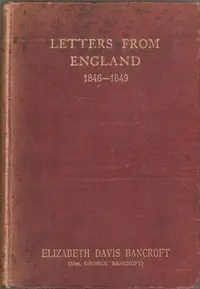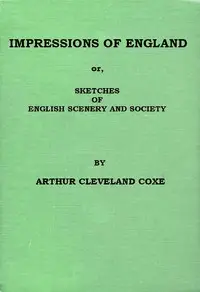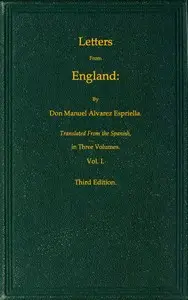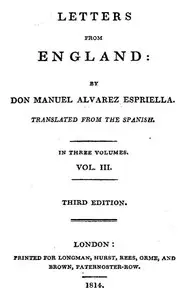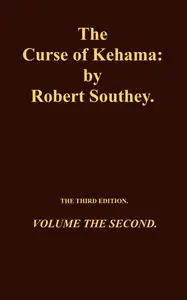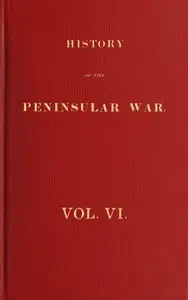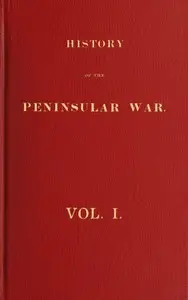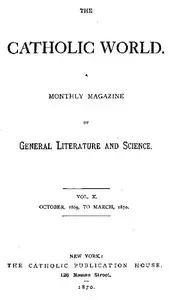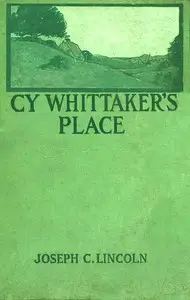"Letters from England, Volume 2 (of 3)" by Robert Southey is a make-believe travelogue set in the 1800s. Displayed as a collection of letters from Don Manuel Alvarez Espriella, a made-up Spanish nobleman, the story follows his journey across England as he takes in both its good qualities and bad qualities. Beginning in Oxford, the audience sees the university through the narrator's eyes, as the narrator describes the wonderful environment and the strange habits of the students. The narrator thinks about the student's clothing, the beauty of Christ Church, and the appealing vibe of the city, as well as talks with the local students. He points out different parts of university life while expressing sadness about the loss of architecture. The narrator talks about living among students, the amazing colleges, and the charming English countryside as his journey goes on. He sets the stage for more exploration and observation on English culture throughout the rest of the story.
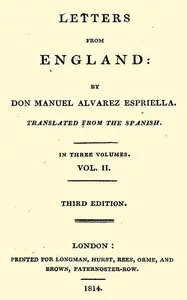
Letters from England, Volume 2 (of 3)
By Robert Southey
An outsider's journey across England reveals both the wonders and the follies of a nation through insightful observations and witty commentary.
Genres
Released
2020-02-24
Formats
mobi (images)
epub3 (images)
mobi
epub (images)
epub
txt
Free Download
Summary
About the AuthorRobert Southey was an English poet of the Romantic school, and Poet Laureate from 1813 until his death. Like the other Lake Poets, William Wordsworth and Samuel Taylor Coleridge, Southey began as a radical but became steadily more conservative as he gained respect for Britain and its institutions. Other romantics such as Byron accused him of siding with the establishment for money and status. He is remembered especially for the poem "After Blenheim" and the original version of "Goldilocks and the Three Bears".
Robert Southey was an English poet of the Romantic school, and Poet Laureate from 1813 until his death. Like the other Lake Poets, William Wordsworth and Samuel Taylor Coleridge, Southey began as a radical but became steadily more conservative as he gained respect for Britain and its institutions. Other romantics such as Byron accused him of siding with the establishment for money and status. He is remembered especially for the poem "After Blenheim" and the original version of "Goldilocks and the Three Bears".
Total Reviews
10.0k
Total reviews from Goodreads may change

